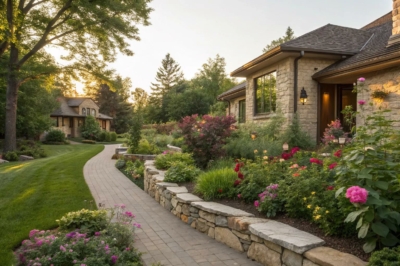1. Garden Features
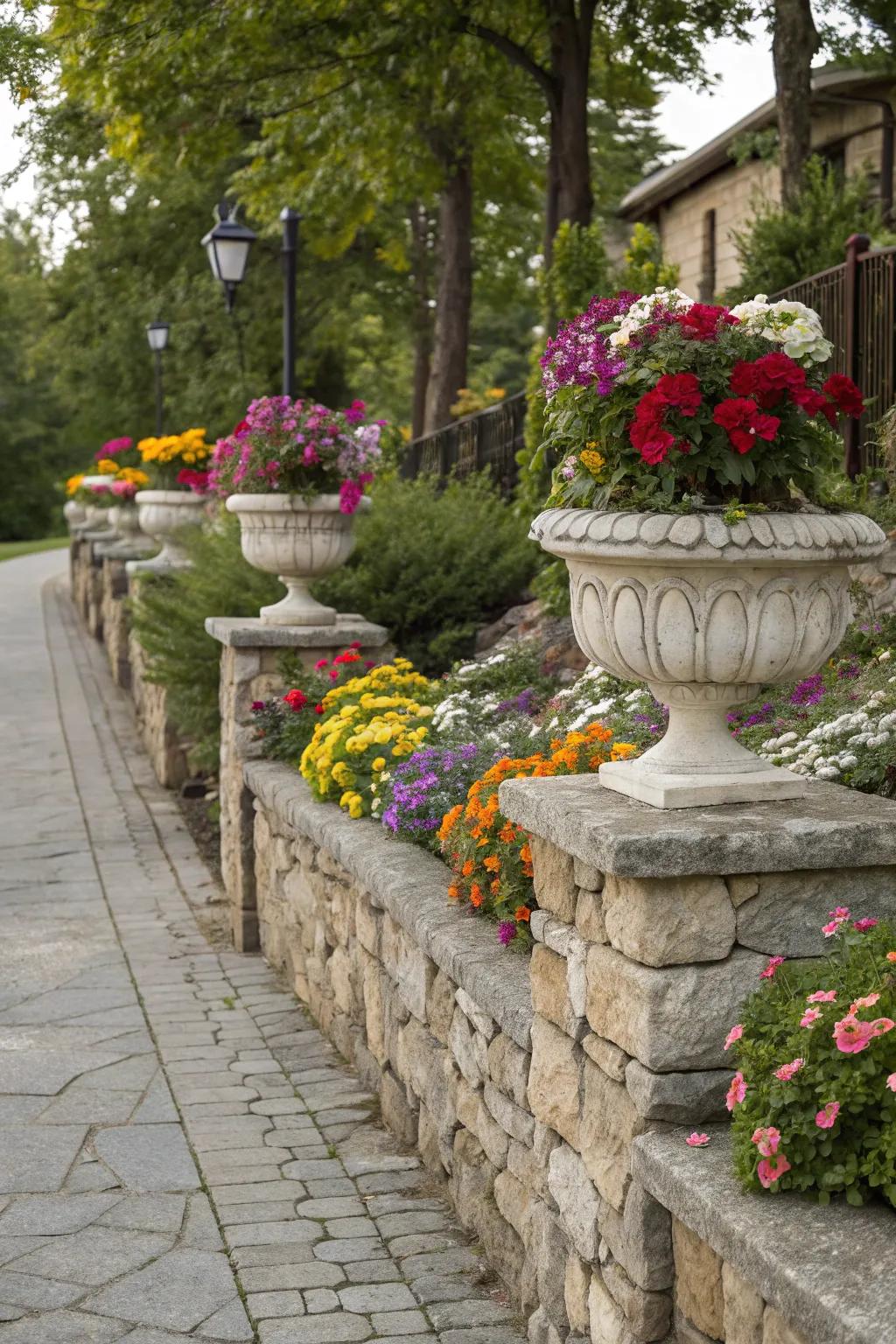
Add charm to your yard by integrating garden features like planters or decorative pots atop a stone wall. It’s a great way to showcase your favorite plants.
Explore these options:
- Decorative Garden Planters: Enhance your yard charm by adding stylish planters to your stone wall. Discover endless possibilities.
- Stone Wall Pots: Showcase your favorite plants with elegant stone wall pots designed for outdoor beauty.
- Outdoor Decorative Urns: Transform your garden wall with classic outdoor urns that highlight your plants beautifully.
2. Layered Design
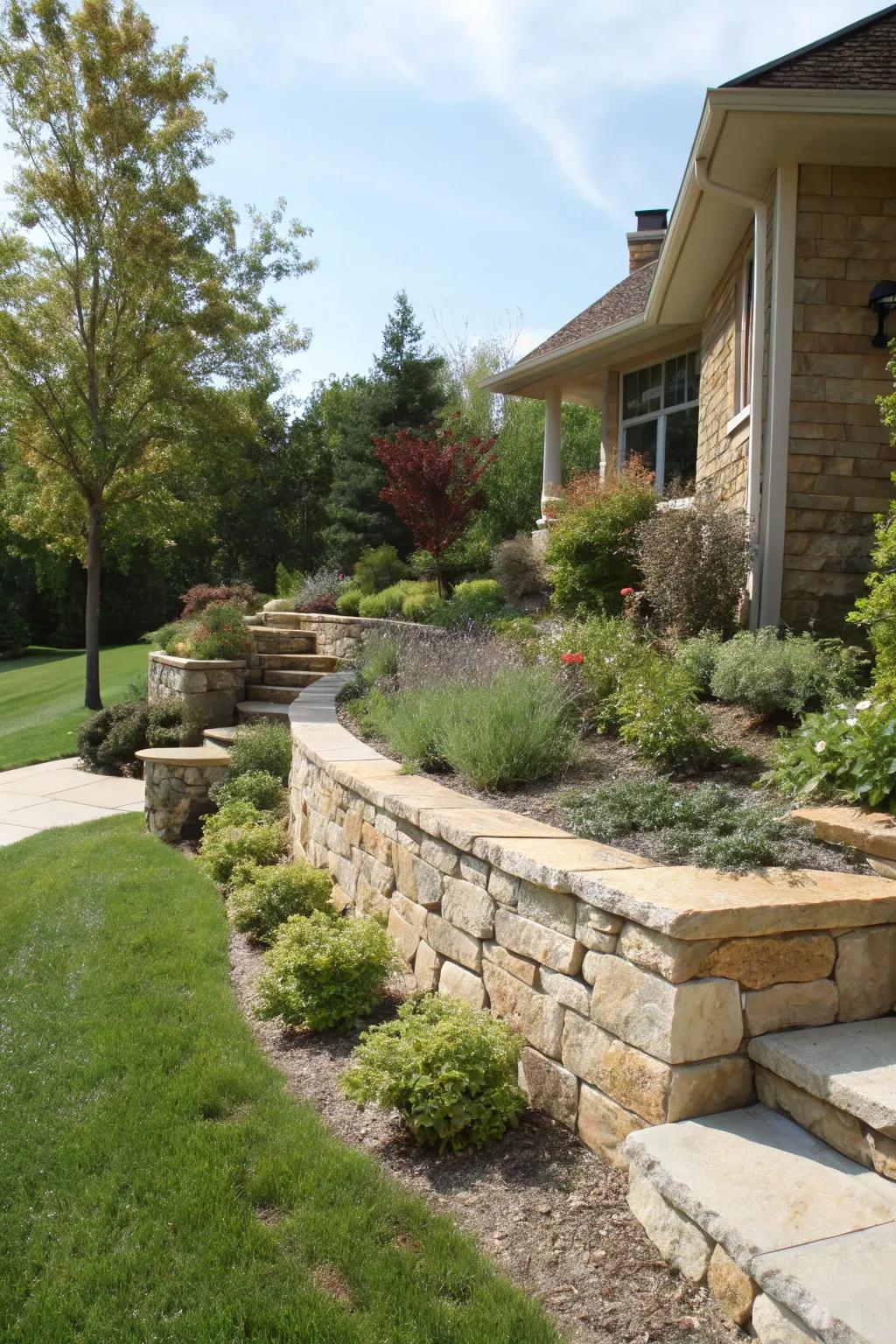
Creating a layered stone wall adds dimension and depth to your yard. It’s a technique I use to make small spaces feel larger and more dynamic.
May just do the trick:
- Landscaping Stone Kits: Elevate your space with durable stones ideal for creating stunning layered wall designs today.
- Garden Edging Stones: Boost your yard’s visual appeal and order, perfect for crafting layered boundaries effortlessly.
- Outdoor Adhesive for Stone: Ensure stability in your stone wall with robust adhesive, enhancing safety and style seamlessly.
3. Mixed Materials
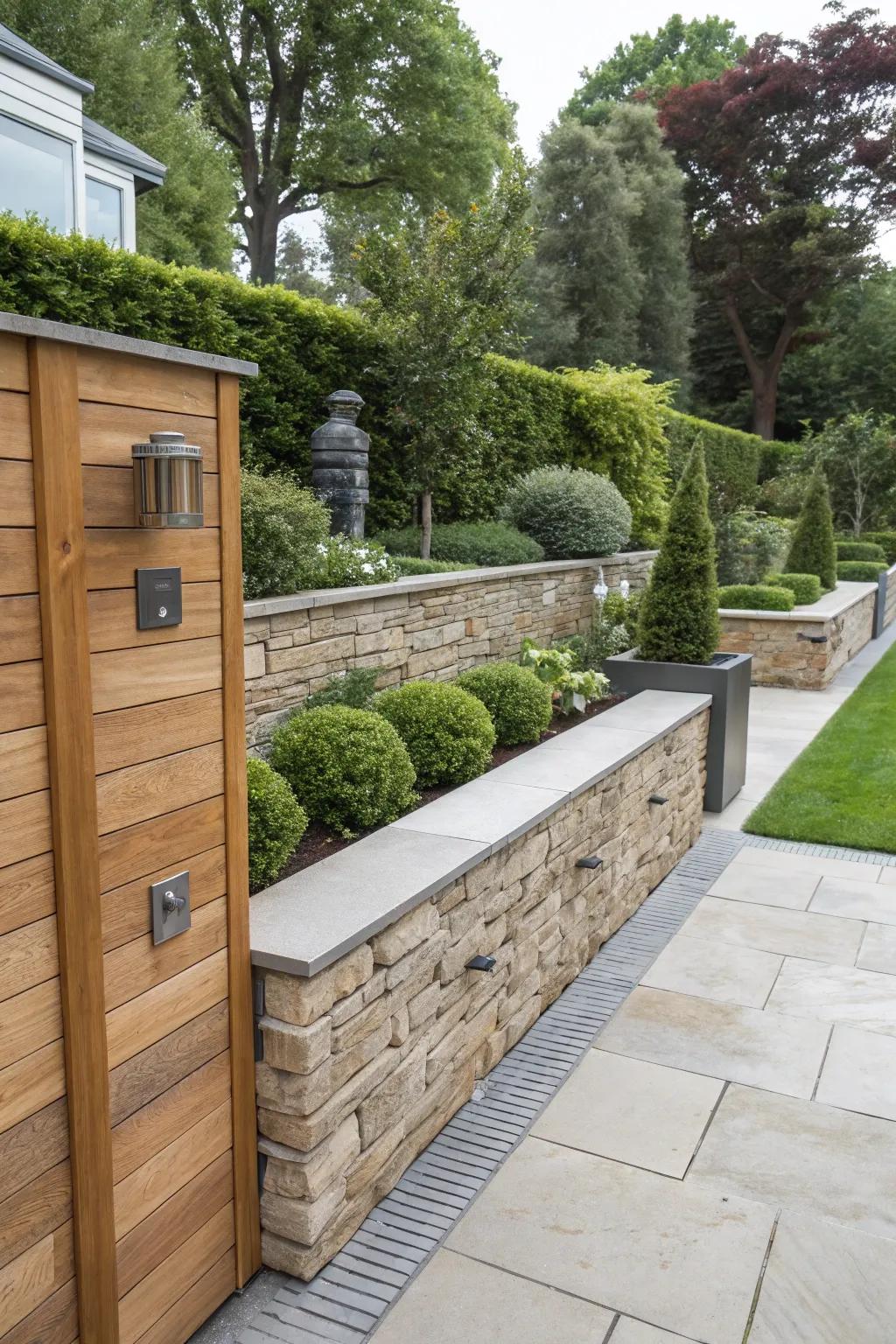
Experiment with mixed materials like wood or metal accents. Mixing textures can give your stone wall an eclectic and modern flair.
Check if these fit your needs:
- Outdoor Wall Light Fixture: Illuminate your stone wall with a stylish light fixture for a modern and functional touch.
- Decorative Metal Panels: Add a touch of elegance with decorative metal panels for a unique wall design.
- Wooden Fence Panels: Incorporate wooden fence panels for a warm, natural contrast to your stone wall.
4. Classic Natural Stone Arrangement
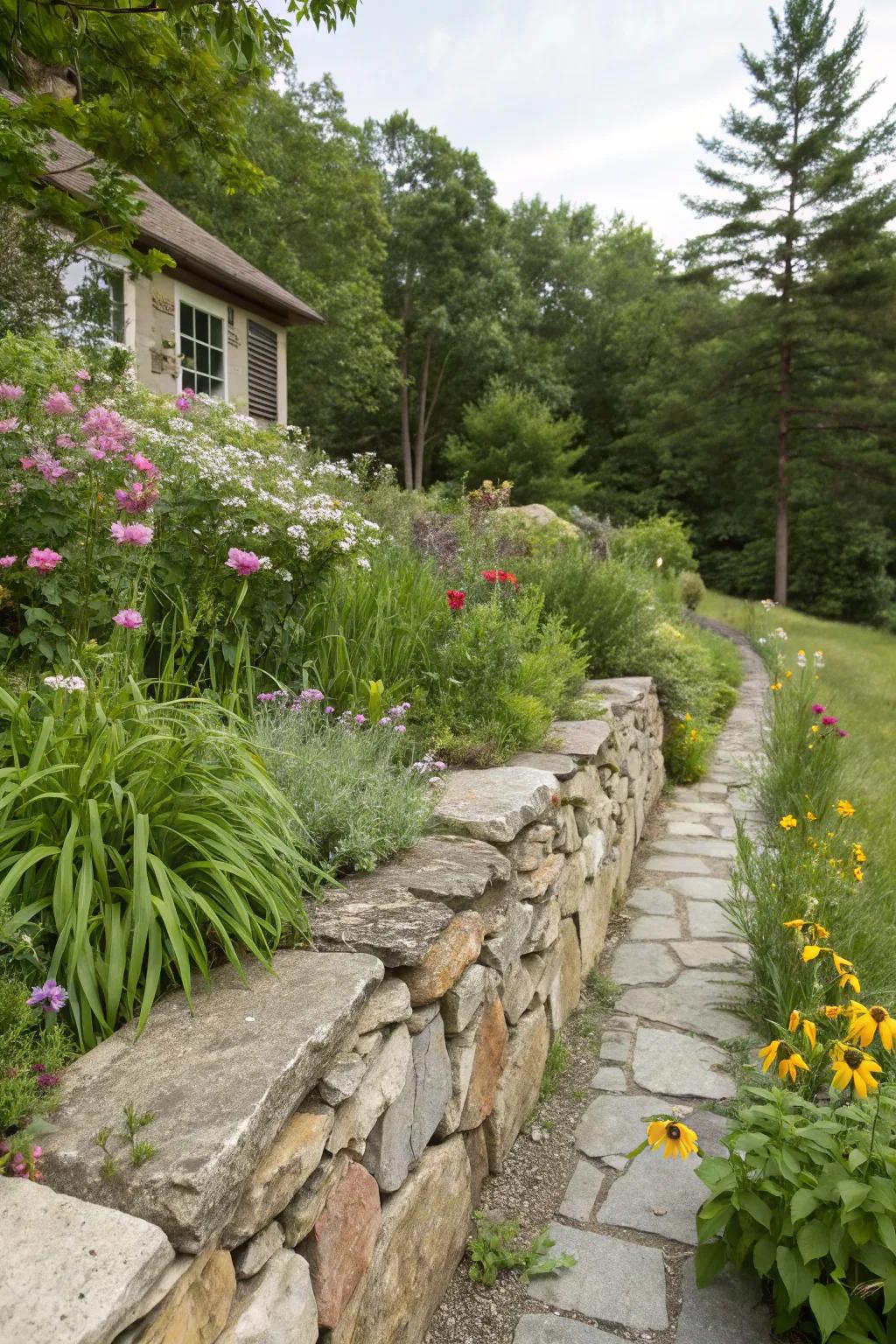
I always start with a classic natural stone arrangement. It offers a rustic vibe that blends seamlessly with any plant life you might have.
A few helpful options:
- Natural Stone Edging: Define your garden’s edge with durable stone edging for a rustic, elegant finish.
- Landscape Fabric: Ensure soil stability and weed control with high-quality landscape fabric beneath your stone wall.
- Gardening Tool Set: Equip yourself with essential tools for building and maintaining a beautiful stone wall garden.
5. Curved Designs
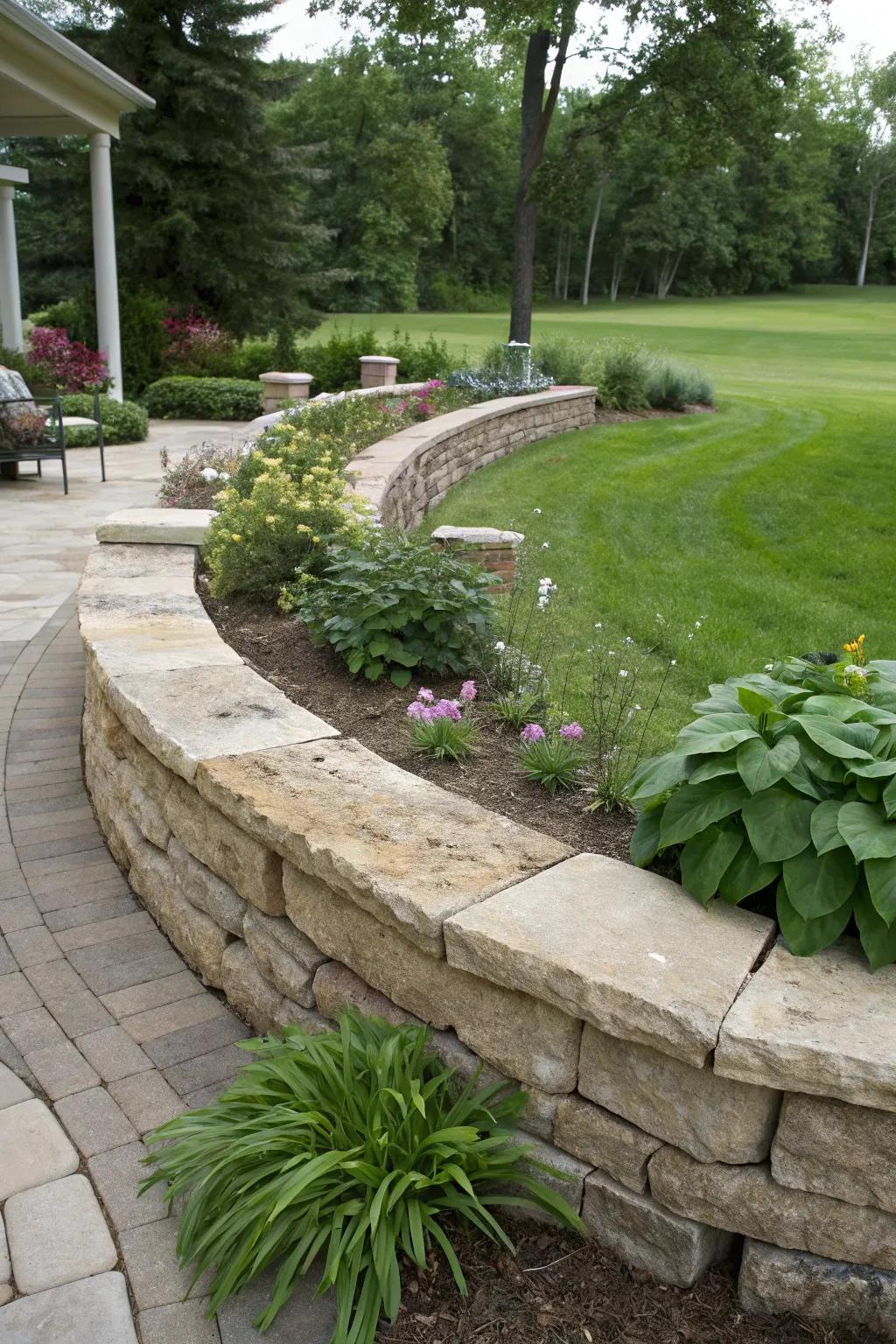
Curves in a stone wall create a natural flow. I enjoy working with curved designs to soften the look and add an organic feel.
Check these products out:
- Flexible Landscape Edging: Define curves easily in your stone wall with versatile, durable flexible landscape edging. Upgrade now!
- Curved Garden Pathway Stones: Enhance organic flow with curved pathway stones, perfect for complementing your stone wall design.
- Garden Wall Lighting: Accent your curved stone wall with elegant lighting for a stunning evening ambiance. Shop today!
6. Gabion Baskets
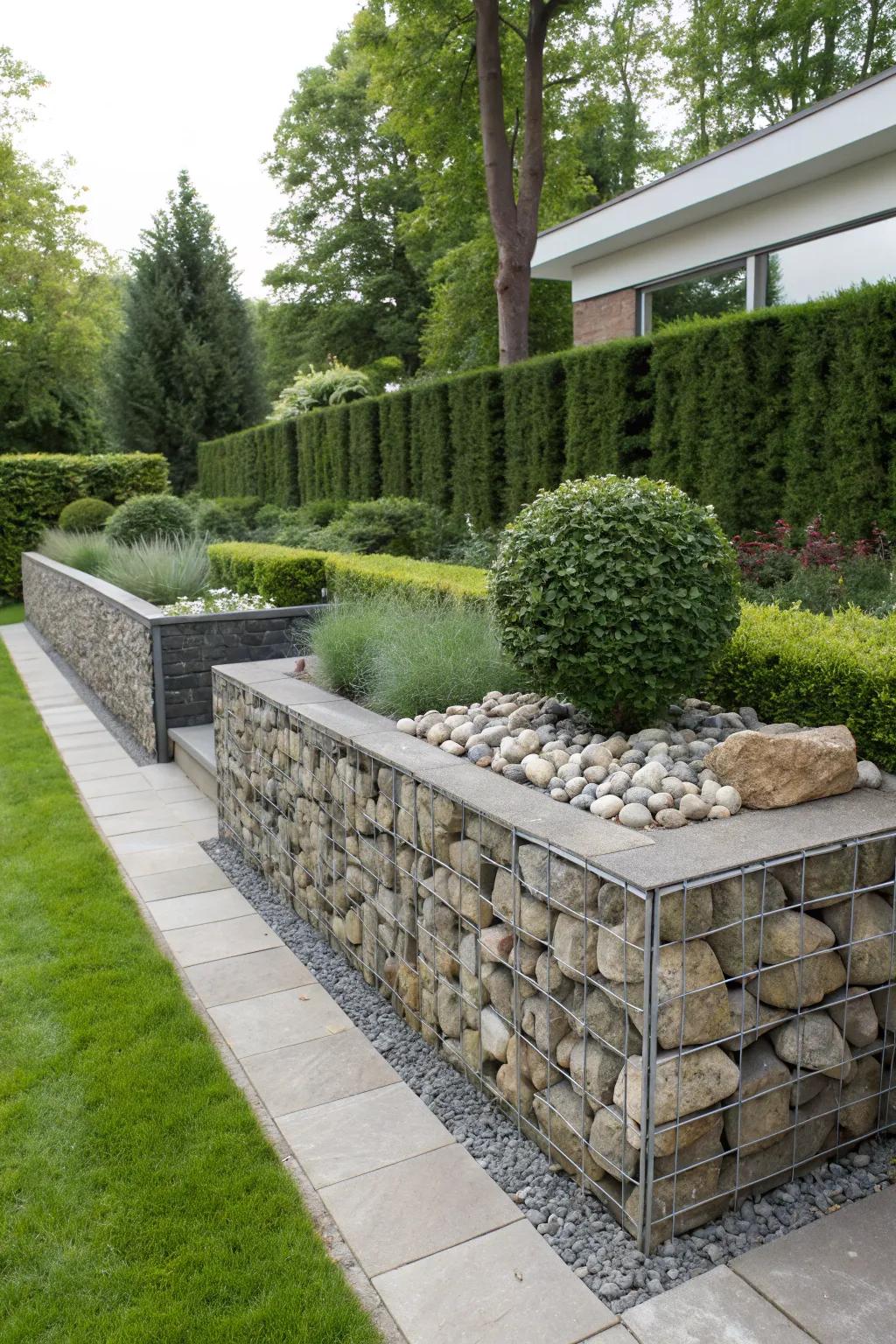
Gabion baskets filled with stones offer a modern twist. I’ve used these for a sturdy yet stylish wall option.
A few choices to try:
- Galvanized Gabion Baskets: Transform your yard with durable gabion baskets for stylish and sturdy landscaping solutions.
- Decorative Stones for Gabions: Enhance your gabion walls with attractive, high-quality decorative stones effortlessly.
- Garden Mesh Wire for Gabions: Secure your gabion walls with reliable mesh wire, ensuring longevity and structural integrity.
7. Spotlighting Features
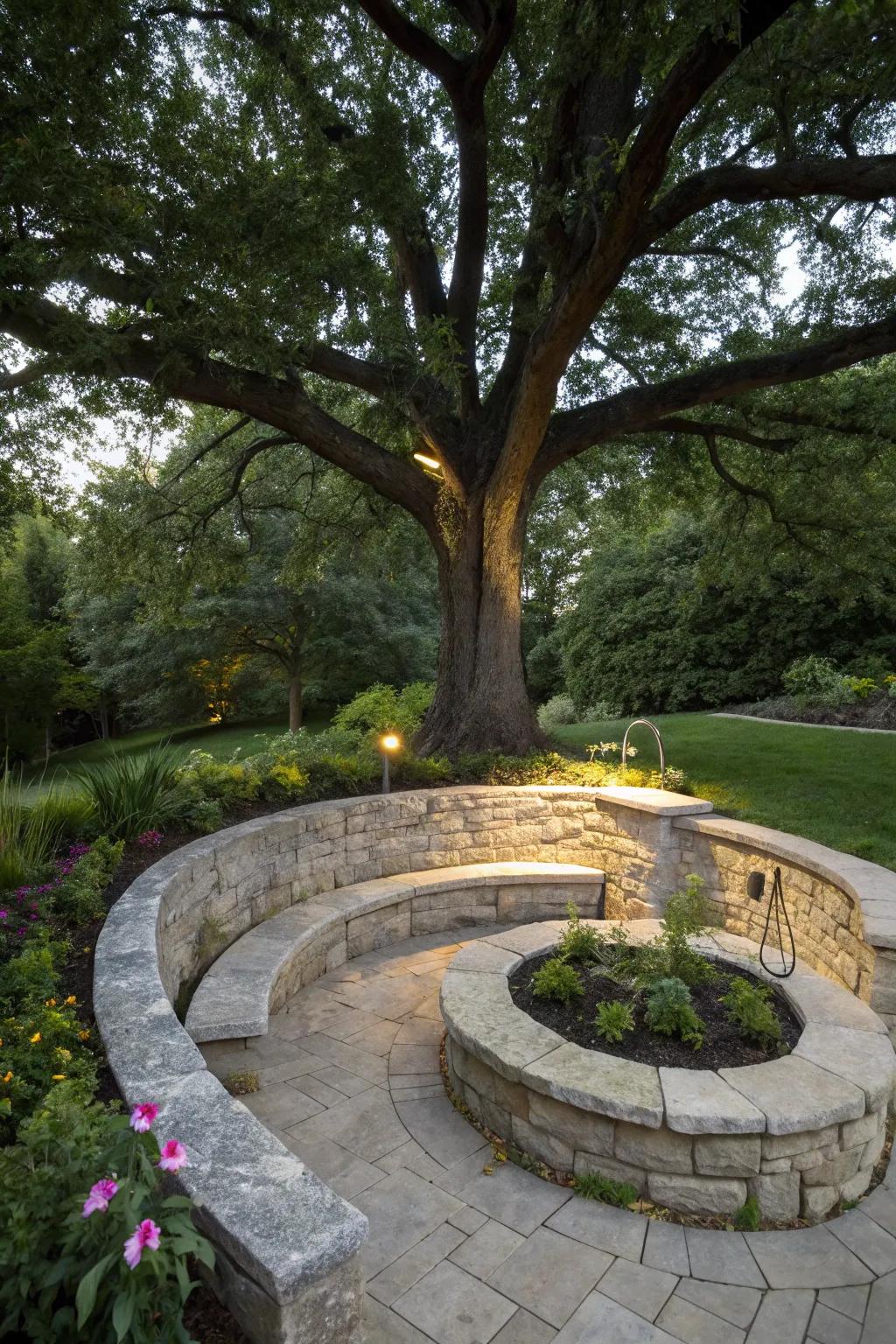
Highlight a special feature, like a tree or sculpture, with a circular stone wall. It’s a technique I use to draw focus and create a centerpiece.
You might give these a try:
- Outdoor LED Landscape Spotlights: Illuminate your tree with energy-efficient LED lights to enhance its beauty at night.
- Decorative Garden Sculptures: Add an elegant garden sculpture as a focal point within your circular stone wall.
- Stone Wall Edging Kits: Create a stunning circular stone wall effortlessly with easy-to-use stone edging kits.
8. Edging and Borders

Use stones as borders for your garden beds to keep things tidy. This easy addition can enhance the overall aesthetic of your yard.
Might be a good match:
- Natural Stone Edging Kit: Enhance your garden’s charm with a natural stone edging kit, adding elegance and tidiness.
- Garden Bed Border Stones: Create defined borders effortlessly with durable garden bed border stones, perfect for any landscape.
- Interlocking Stone Pavers: Upgrade your garden path with interlocking stone pavers, offering stability and visual appeal.
9. Painted Stones
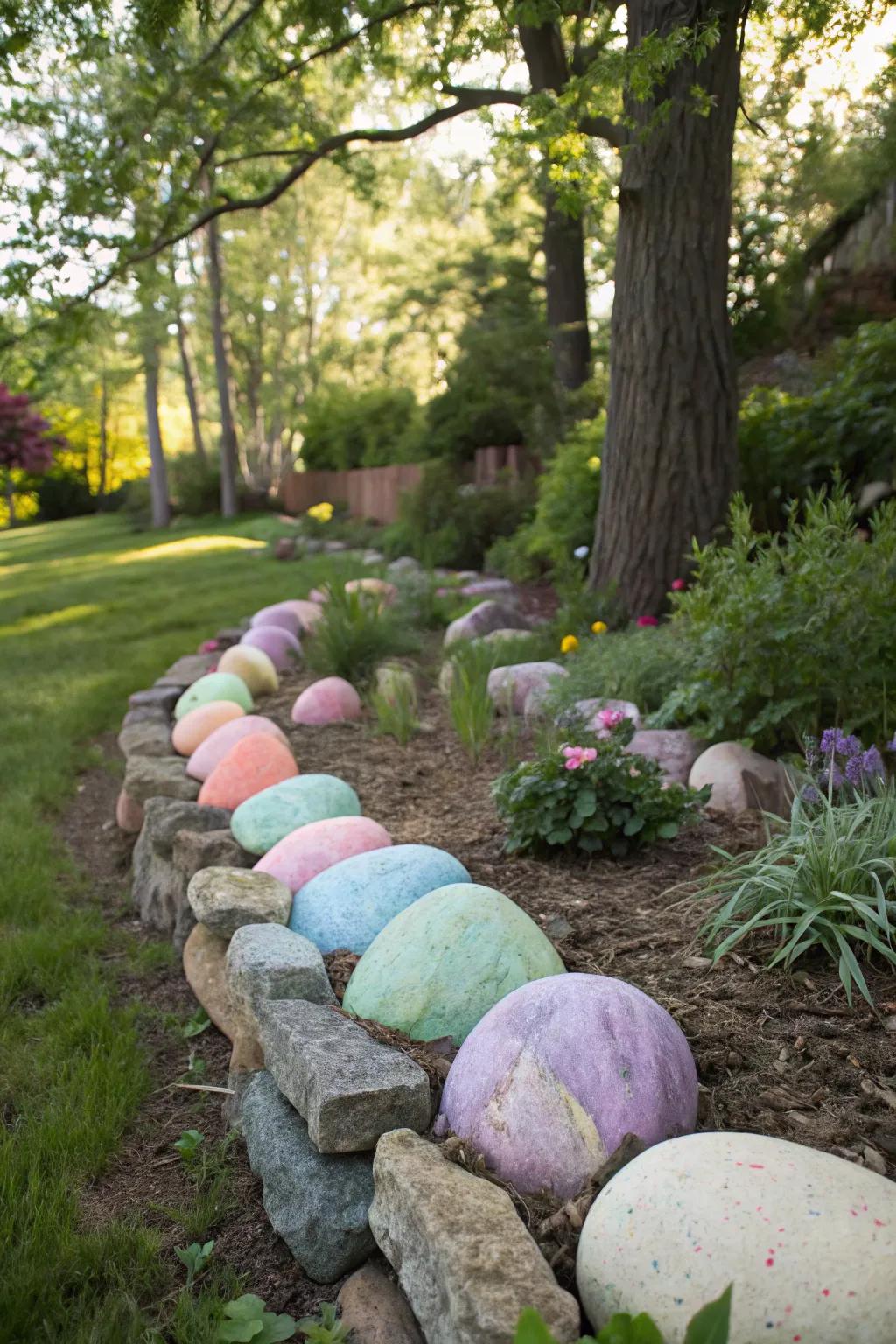
For a creative twist, paint your stones in earthy or bold shades. It’s a fun way to add personality and color to your space.
Maybe worth checking out:
- Outdoor Weatherproof Paint Set: Unleash your creativity with weatherproof outdoor paints perfect for stone and garden projects.
- Paint Brushes for Decorative Projects: Enhance your painting precision with brushes tailored for detailed outdoor stone artwork.
- Outdoor Stone Sealant Spray: Protect your painted stones with a sealant spray that ensures durability and longevity.
10. Natural Rock Retaining Wall
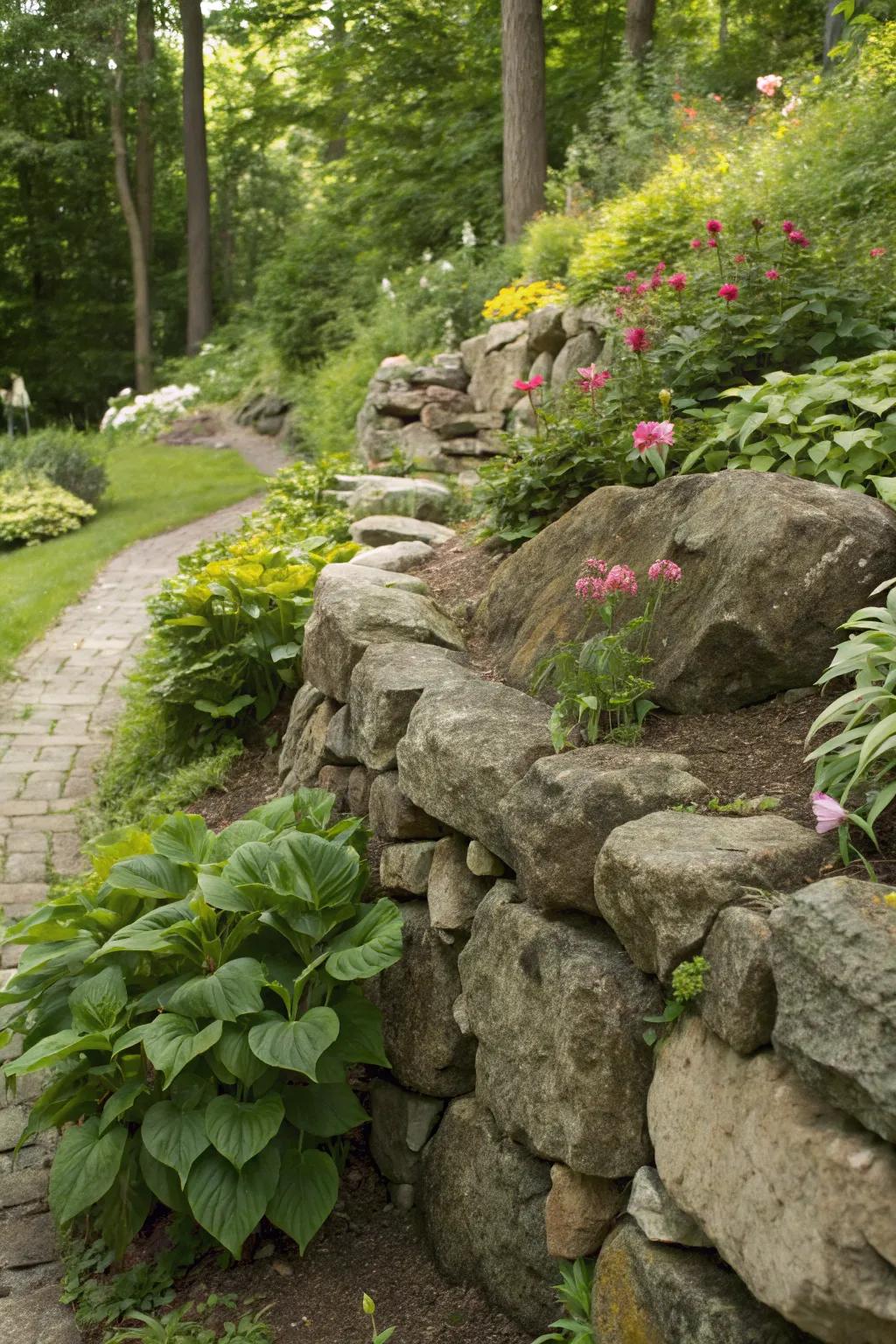
Using natural rocks for your wall gives an organic feel. I love how it makes the garden look like a natural extension of the landscape.
A few things you might like:
- Landscaping Rocks: Transform your garden with these stunning landscape rocks, perfect for building natural-looking walls.
- Garden Wall Design Book: Get inspired with creative ideas for designing your perfect stone wall garden feature.
- Stone Wall Construction Tools: Equip yourself with these essential tools to make building stone walls simple and effective.
11. Plant Integration
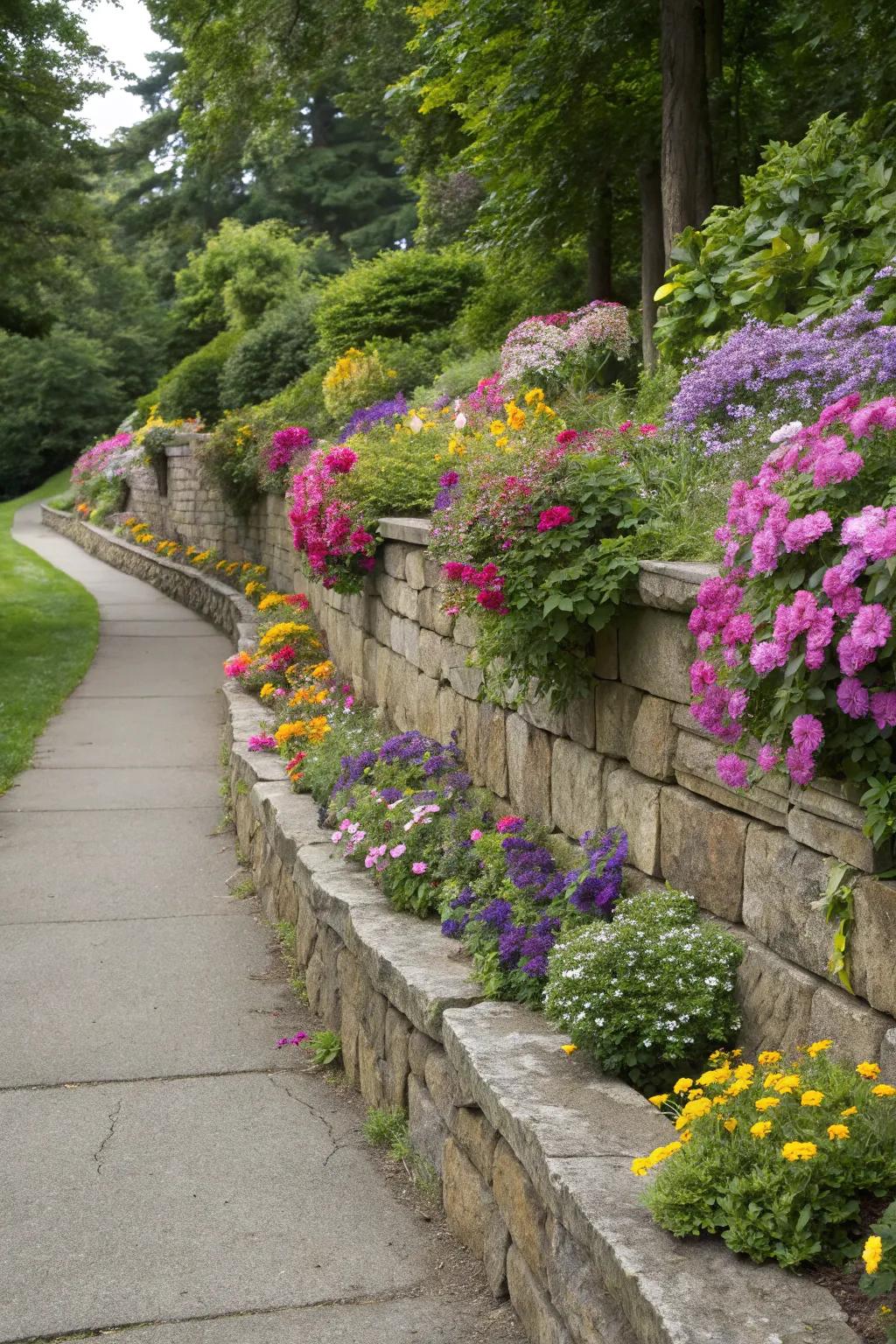
Incorporating plants into your stone wall can add a lush, vibrant touch. I love how the pops of green and color contrast with the earthy stones.
Possibly handy products:
- Climbing Plants Starter Kit: Enhance your wall’s texture with climbing plants. Add vibrant greenery effortlessly.
- Colorful Perennial Flower Seeds: Bring color and life with perennial seeds. Enjoy blooms all year round.
- Drip Irrigation Kit: Ensure your plants thrive with minimal effort using a reliable drip irrigation system.
12. Pathway Inclusion
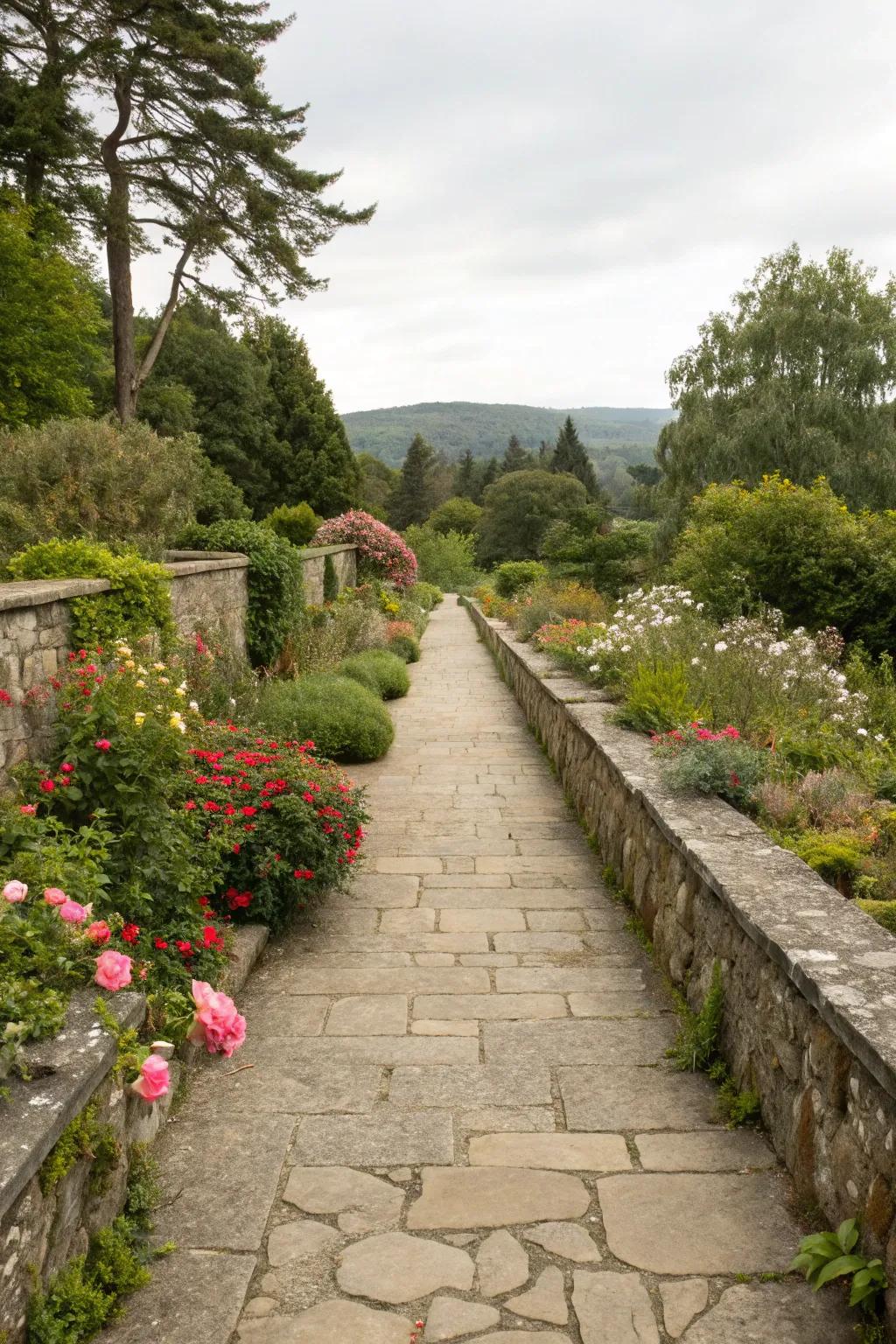
Border your garden path with a low stone wall for a neat and organized look. I find that it guides the eye and adds structure to the yard.
A few relevant products:
- Natural Stone Garden Edging Kit: Enhance your garden path with this durable stone edging kit for a neat, structured look.
- Garden Pathway Stepping Stones: Create a charming pathway with these versatile stepping stones, adding elegance to your yard.
- Stone Wall Border Panels: Install these easy-to-use border panels for an organized garden path with added visual appeal.
13. Seating Areas
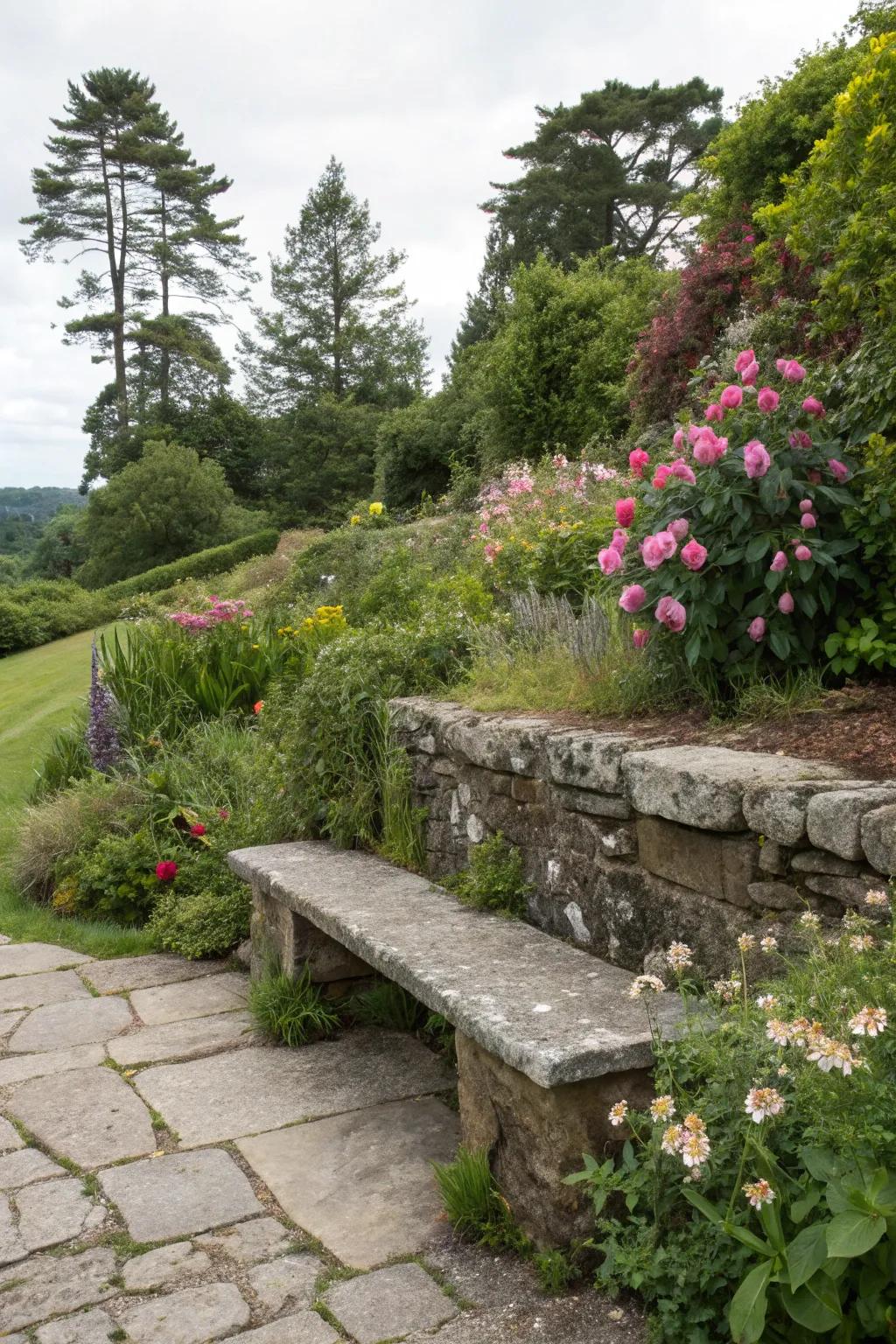
Transform a stone wall into a seating area—perfect for enjoying a morning coffee. I’ve done this, and it’s become my favorite spot to unwind.
Some handy options:
- Outdoor Throw Pillows: Brighten your seating area with outdoor pillows, adding color and comfort to your stone bench.
- Weatherproof Cushions: Enhance comfort with durable cushions, perfect for relaxing on your stone wall seating area.
- Portable Coffee Table: Pair your seating area with a small, portable coffee table for added convenience and style.
14. Stone Stairway Integration
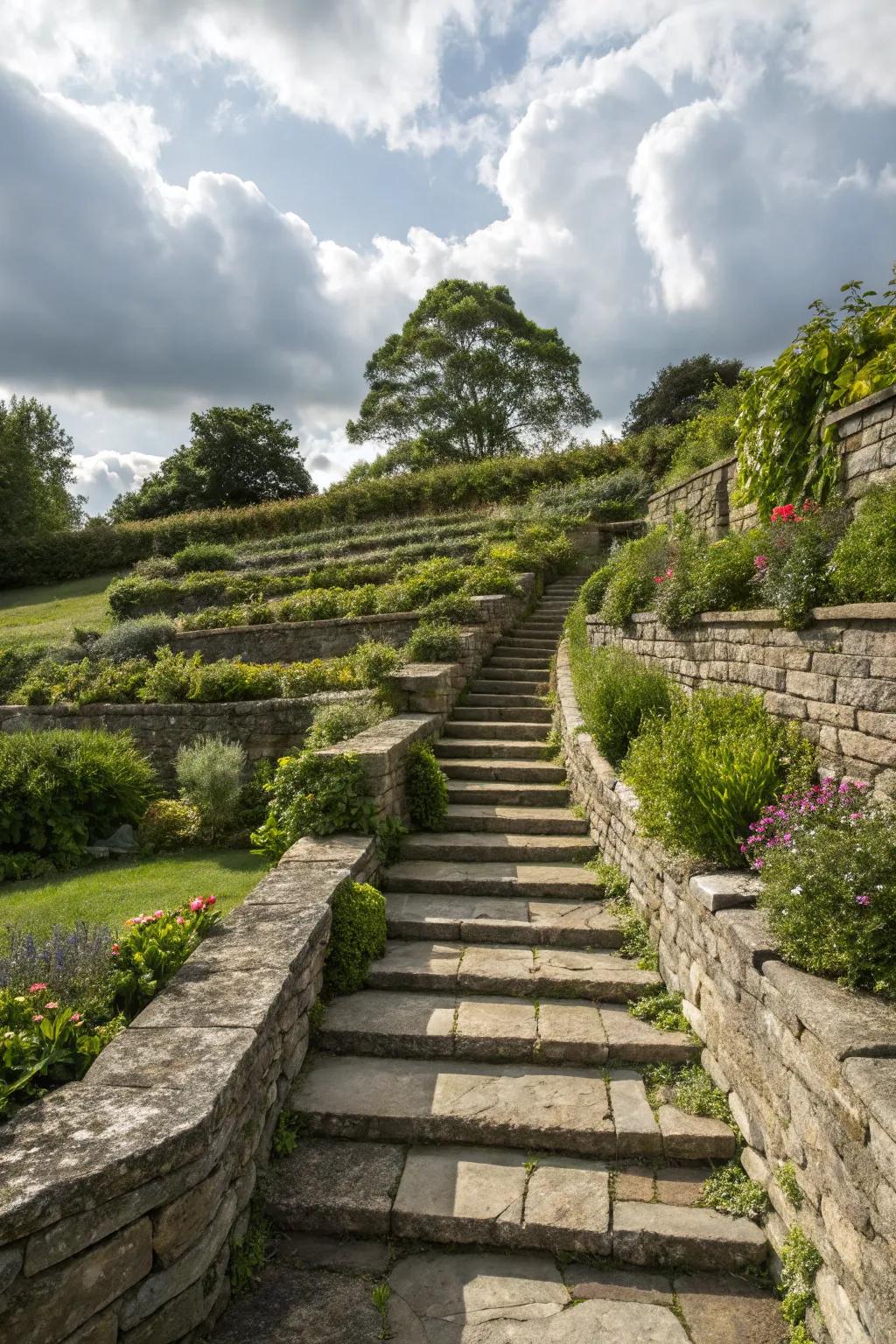
Integrate stone stairways into your wall for a seamless transition between levels. It’s a practical and visually appealing solution I’ve implemented.
You might like:
- Garden Stone Edging: Enhance your stone stairway with durable garden stone edging for a polished and cohesive look.
- Outdoor LED Step Lights: Illuminate your stone steps with weather-resistant outdoor LED lights for safety and ambiance.
- Non-Slip Stair Treads: Add non-slip stair treads to your stone steps to ensure safety in all weather conditions.
15. Contrast with House Exterior
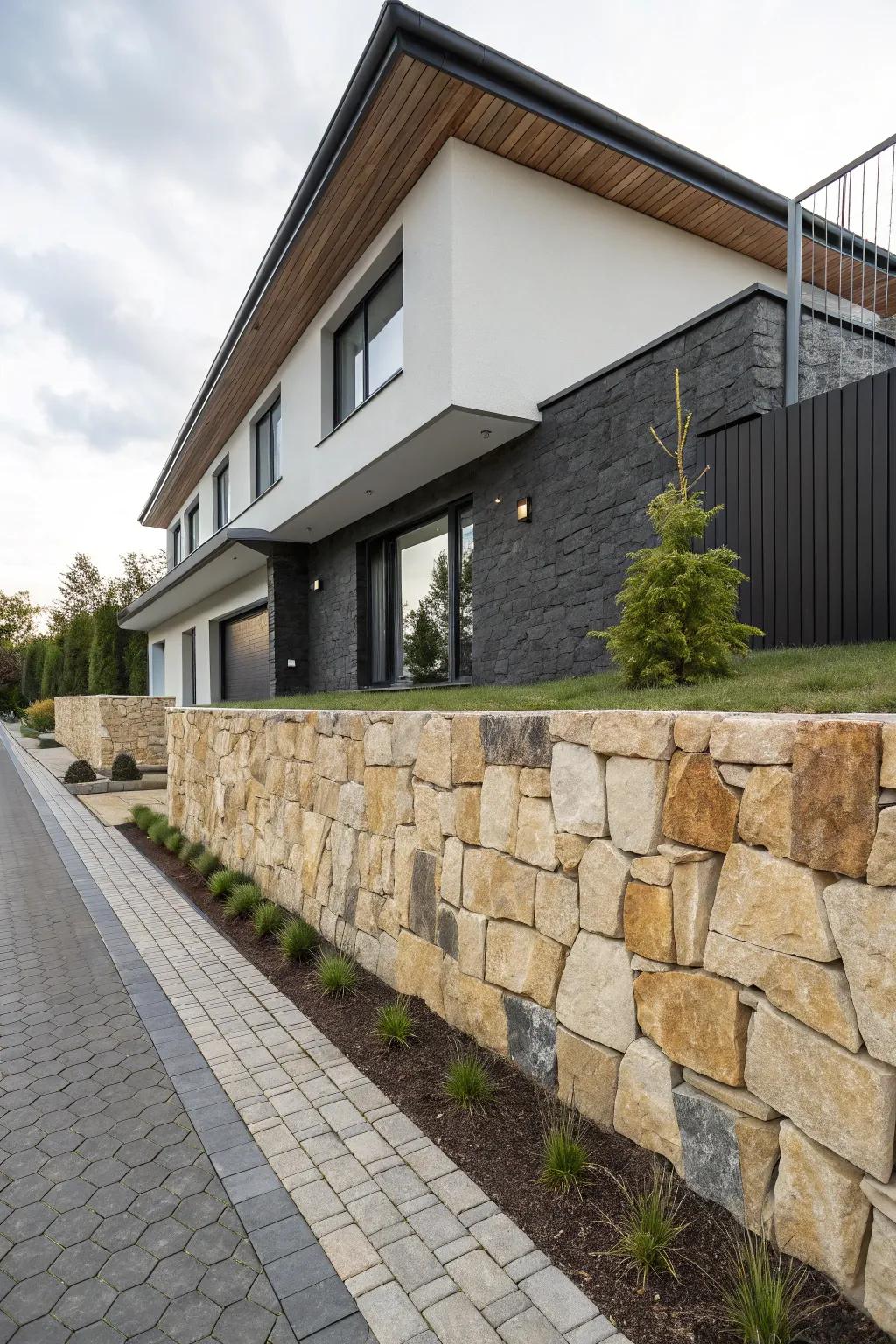
A stone wall can either complement or contrast with your home’s exterior. I love playing with color tones to find the perfect balance.
Consider these options:
- Outdoor LED Wall Lights: Illuminate your stone wall with stylish LED lights for an elegant contrast. Enhance your curb appeal!
- Stone Sealer and Enhancer: Protect and enhance your wall’s natural color with a high-quality stone sealer. Keep it vibrant!
- Decorative Planters: Add greenery with elegant planters to complement or contrast your stone wall beautifully.
16. Vertical Garden
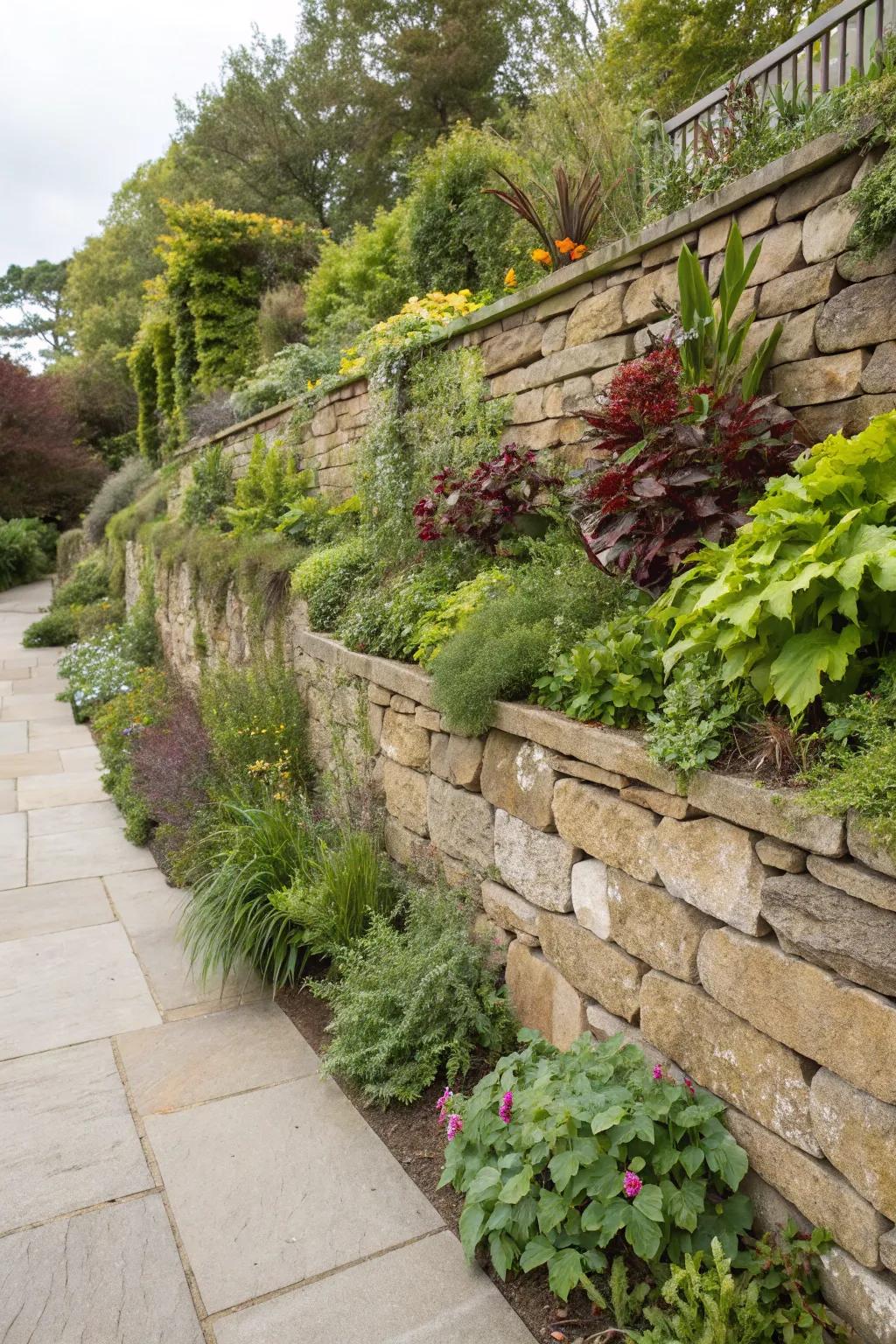
Create a vertical garden by planting between the stone gaps. It’s a unique way to utilize space and add greenery.
Try these:
- Vertical Garden Planters: Create stunning wall greenery by filling stone gaps with these easy-to-use planters.
- Stone Wall Planting Soil: Enhance plant growth in wall crevices with this nutrient-rich soil blend.
- Drip Irrigation Kit for Wall Gardens: Keep your vertical plants well-watered with this efficient drip irrigation system.
